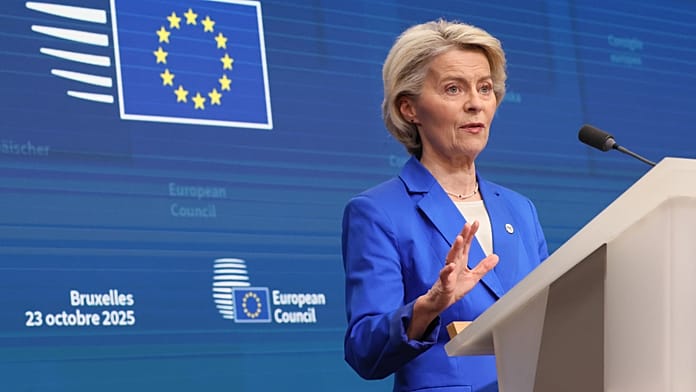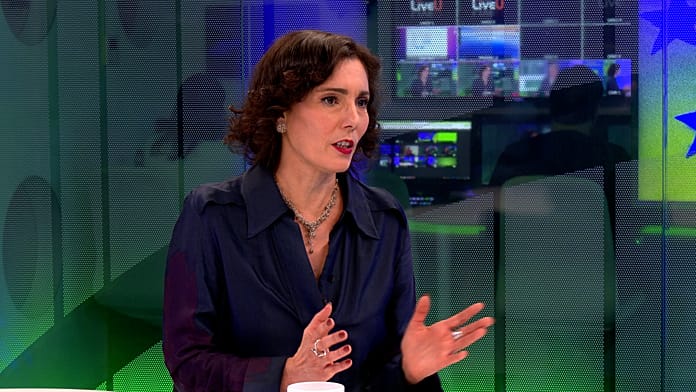Nigel Farage Coutts scandal makes history as new word enters English Dictionary
The term “debanking” has been added to the English dictionary following Nigel Farage’s row with NatWest’s private bank, Coutts.The GB News presenter has become associated with the word after his bank account was closed for politically motivated reasons.The scandal erupted over other cases of politicised “debanking”, where individuals were refused bank accounts because of their beliefs.The new entry into the Collins English Dictionary will read: “Debanking, noun, the act of depriving a person of banking facilities”.WATCH: Farage FIGHTING to ensure NatWest don't get away with debanking It explained how the new word gained traction in 2023: “A different type of financial problem, debanking, also makes the list, after populist politician Nigel Farage claimed his bank, Coutts, tried to close his account because of his political views. “The issue was thrust into the spotlight and many others subsequently came forward to complain of having been debanked without explanation.”Among those who also claim to have been debanked due to political reasons, are Defence Secretary Grant Shapps and Richard Tice, the GB News presenter and leader of Reform UK. In a recent independent review conducted by Travers Smith, NatWest admitted that there were “serious failings” in the treatment of Farage when they decided to shut down his bank account.The closure of his account did not follow the bank's policies, according to the report.Yet the independent review concluded that NatWest did not break the law, as the decision was mainly a commercial one.LATEST DEVELOPMENTS:Nigel Farage blasts 'whitewash' Natwest review as 'laughable'Nigel Farage fumes at NatWest after document reveals staff wanted to 'throw milkshake' over him‘What goes around comes around!’ Nigel Farage blasts troubled Metro Bank after ‘Brexit Party debanking’Farage fumed at the findings of the reviewFarage fumed at the findings of the review: “The long-anticipated Travers Smith report has whitewashed the decision to close my accounts at Coutts Bank.“This comes as little surprise to me given Travers Smith’s Emeritus Chair, Chris Hale, is a pro-Remain lawyer who once described Brexiteers as racist and xenophobic."The report’s authors claim it was 'predominantly a commercial decision' to close my accounts but, crucially, they also noted that evidence given to them by witnesses in relation to this episode was not entirely consistent."Travers Smith has taken a very mealy-mouthed approach to this complex issue. The law firm argues that my political views 'not aligning with those of the bank' was not in itself a political decision. This is laughable.”Meanwhile, a bombshell document uncovered last month by GB News showed the high level of contempt held for Farage, with one staff member even threatening to throw a milkshake over him.In one conversation, a bank staffer says: “id throw a milkshake at him if i was approached to open an account for him [sic].”One worker referenced a BBC article about Nigel having his bank account closed and said: “Hope that knocked him down a peg or 2 [sic].”The national broadcaster previously claimed the GB News presenter's account was shut because he did not reach the financial threshold.The BBC later admitted to mistakes in the way it reported the closure of Farage’s bank account.NatWest’s former boss, Dame Alison Rose, resigned over the scandal, when it emerged that Rose disclosed Farage’s banking information with the BBC.Rose admitted to a "serious error in judgement" when she disclosed details about the GB News presenter's finances to a BBC journalist.Along with “debanking” other words relating to political issues have been included.“Ulez”, the acronym for Khan’s controversial low-emissions driving scheme, has been added.However, trumping both to gain the title of most notable word of 2023, was the phrase AI.Alex Beecroft, the managing director of Collins, said: “AI has been a big focus this year in the way that it has developed and has quickly become as ubiquitous and embedded in our lives as email, streaming or any other once futuristic, now everyday technology.”
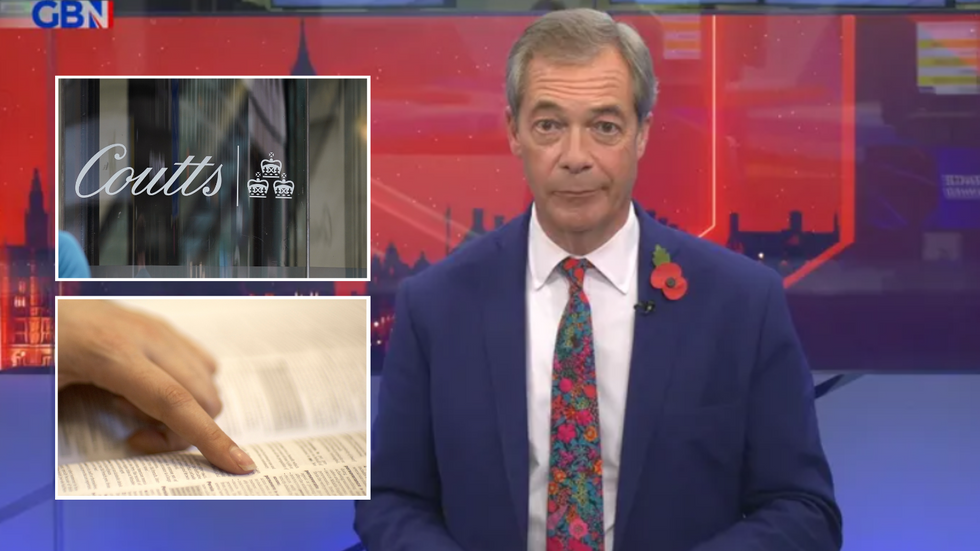
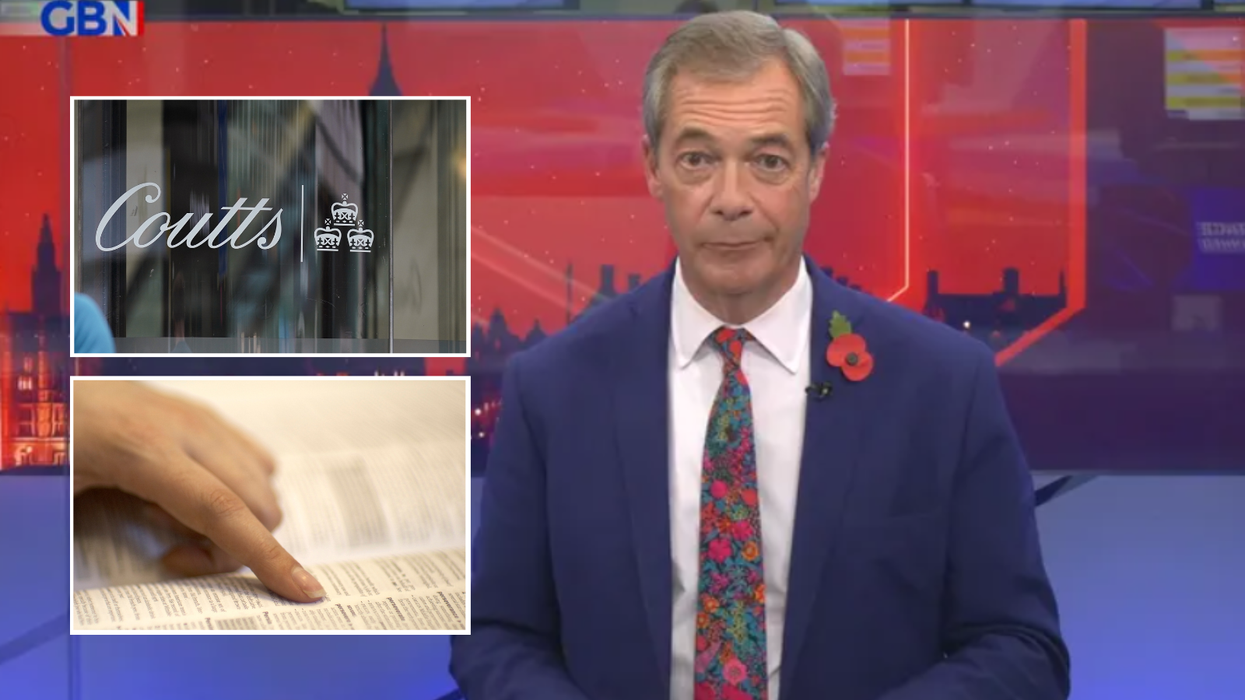
The term “debanking” has been added to the English dictionary following Nigel Farage’s row with NatWest’s private bank, Coutts.
The GB News presenter has become associated with the word after his bank account was closed for politically motivated reasons.
The scandal erupted over other cases of politicised “debanking”, where individuals were refused bank accounts because of their beliefs.
The new entry into the Collins English Dictionary will read: “Debanking, noun, the act of depriving a person of banking facilities”.
WATCH: Farage FIGHTING to ensure NatWest don't get away with debanking
It explained how the new word gained traction in 2023: “A different type of financial problem, debanking, also makes the list, after populist politician Nigel Farage claimed his bank, Coutts, tried to close his account because of his political views.
“The issue was thrust into the spotlight and many others subsequently came forward to complain of having been debanked without explanation.”
Among those who also claim to have been debanked due to political reasons, are Defence Secretary Grant Shapps and Richard Tice, the GB News presenter and leader of Reform UK.
In a recent independent review conducted by Travers Smith, NatWest admitted that there were “serious failings” in the treatment of Farage when they decided to shut down his bank account.
The closure of his account did not follow the bank's policies, according to the report.
Yet the independent review concluded that NatWest did not break the law, as the decision was mainly a commercial one.
LATEST DEVELOPMENTS:
- Nigel Farage blasts 'whitewash' Natwest review as 'laughable'
- Nigel Farage fumes at NatWest after document reveals staff wanted to 'throw milkshake' over him
- ‘What goes around comes around!’ Nigel Farage blasts troubled Metro Bank after ‘Brexit Party debanking’

Farage fumed at the findings of the reviewFarage fumed at the findings of the review: “The long-anticipated Travers Smith report has whitewashed the decision to close my accounts at Coutts Bank.
“This comes as little surprise to me given Travers Smith’s Emeritus Chair, Chris Hale, is a pro-Remain lawyer who once described Brexiteers as racist and xenophobic.
"The report’s authors claim it was 'predominantly a commercial decision' to close my accounts but, crucially, they also noted that evidence given to them by witnesses in relation to this episode was not entirely consistent.
"Travers Smith has taken a very mealy-mouthed approach to this complex issue. The law firm argues that my political views 'not aligning with those of the bank' was not in itself a political decision. This is laughable.”
Meanwhile, a bombshell document uncovered last month by GB News showed the high level of contempt held for Farage, with one staff member even threatening to throw a milkshake over him.
In one conversation, a bank staffer says: “id throw a milkshake at him if i was approached to open an account for him [sic].”
One worker referenced a BBC article about Nigel having his bank account closed and said: “Hope that knocked him down a peg or 2 [sic].”
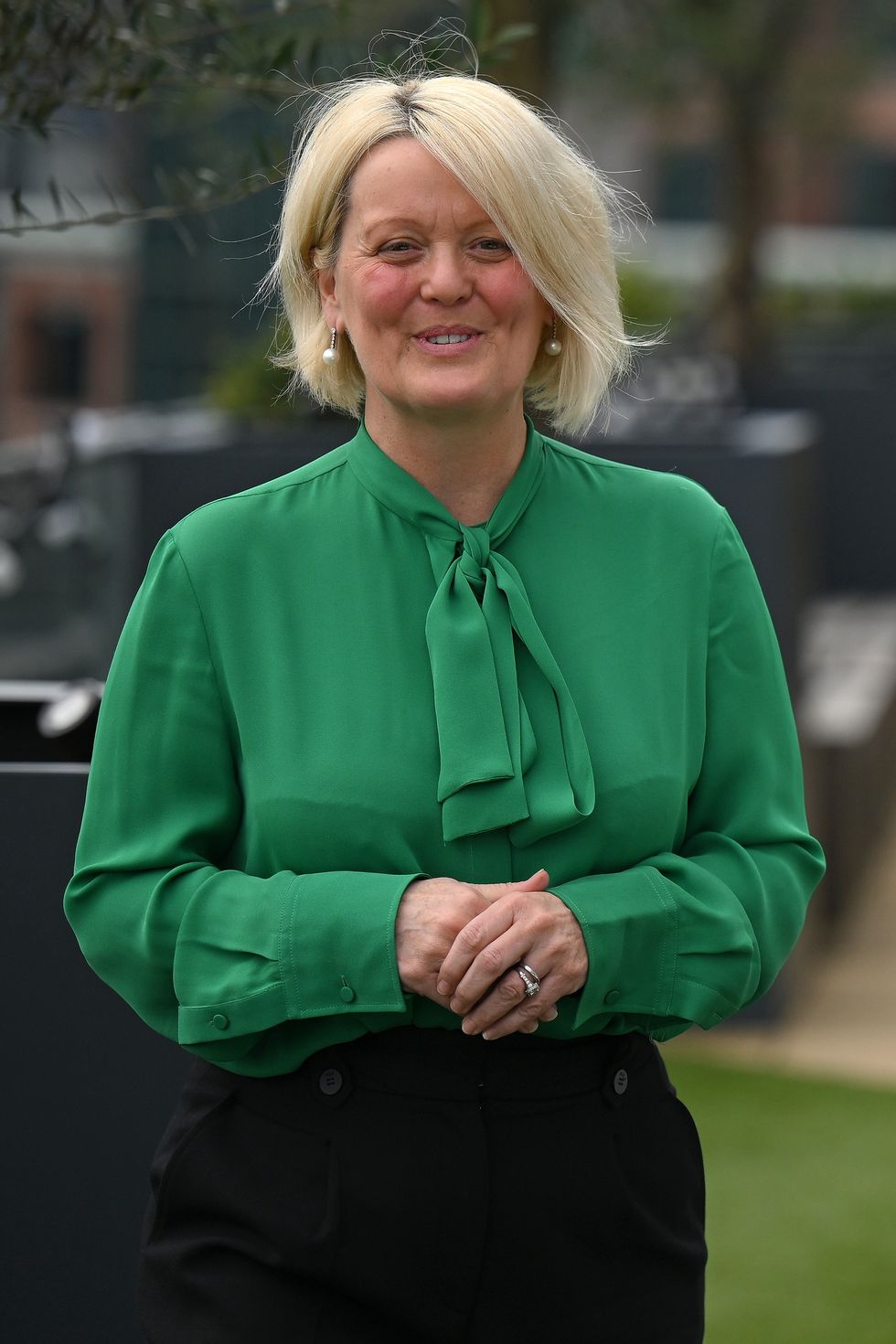
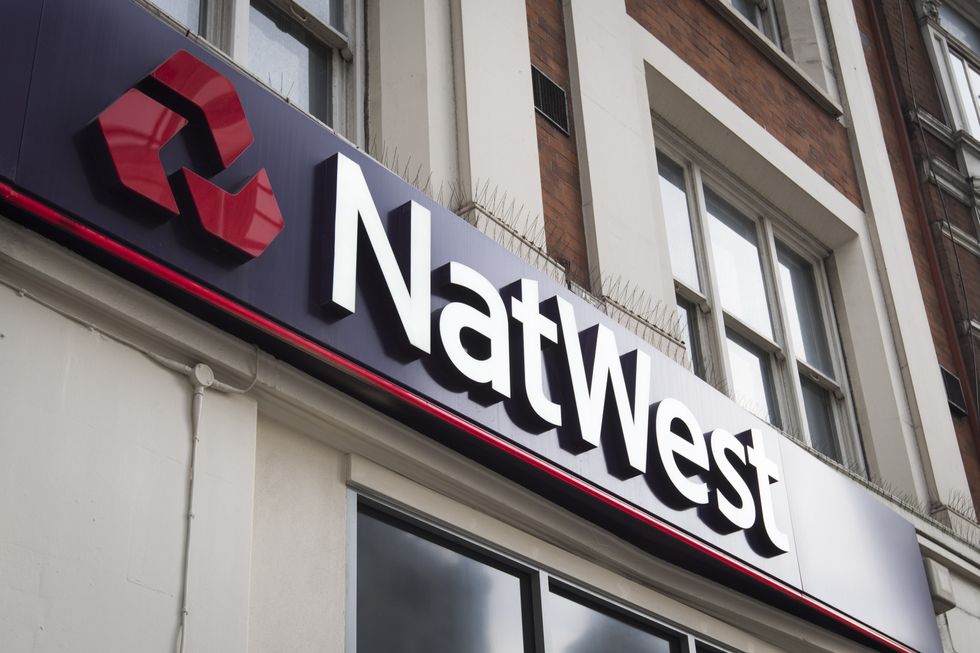
The national broadcaster previously claimed the GB News presenter's account was shut because he did not reach the financial threshold.
The BBC later admitted to mistakes in the way it reported the closure of Farage’s bank account.
NatWest’s former boss, Dame Alison Rose, resigned over the scandal, when it emerged that Rose disclosed Farage’s banking information with the BBC.
Rose admitted to a "serious error in judgement" when she disclosed details about the GB News presenter's finances to a BBC journalist.
Along with “debanking” other words relating to political issues have been included.
“Ulez”, the acronym for Khan’s controversial low-emissions driving scheme, has been added.
However, trumping both to gain the title of most notable word of 2023, was the phrase AI.
Alex Beecroft, the managing director of Collins, said: “AI has been a big focus this year in the way that it has developed and has quickly become as ubiquitous and embedded in our lives as email, streaming or any other once futuristic, now everyday technology.”




























